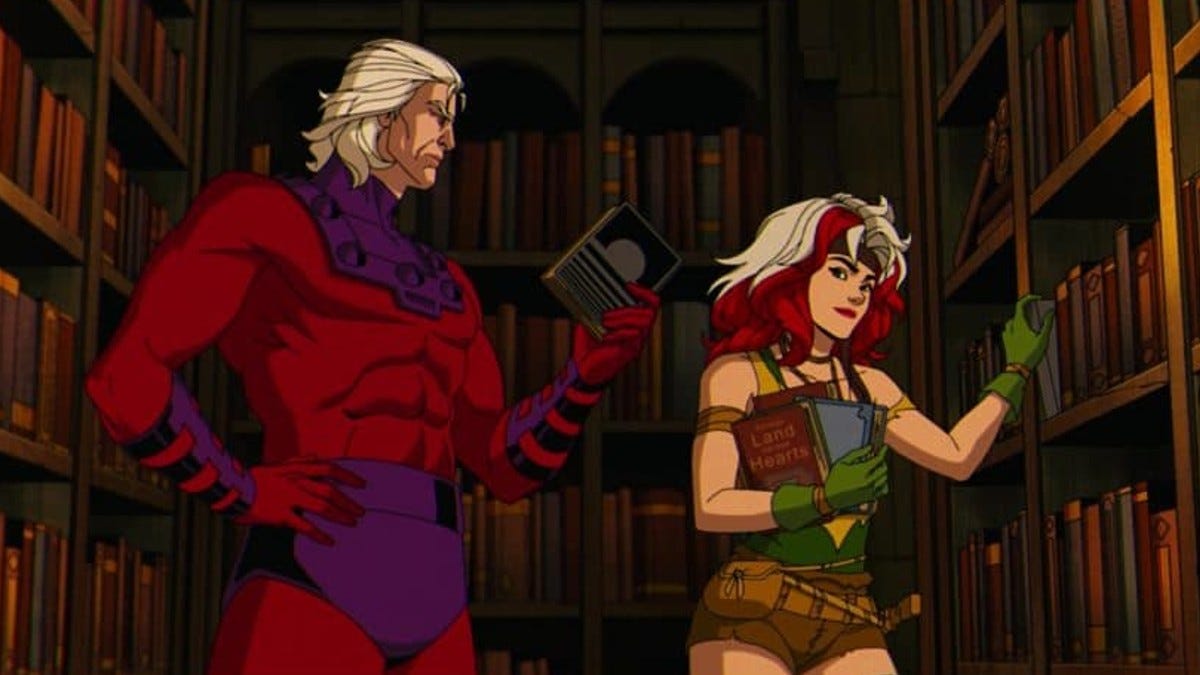The Bad Boy Innoculation
Why Every Girl Needs to Fall for Magneto Before She Meets Him in Real Life
There’s a particular moment in every young woman’s development when she discovers the magnetic pull of dangerous men. We call it the bad boy stage and, if she’s lucky, it will ONLY be a stage—one that happens safely within the confines of fiction.
The fictional villain crush serves as an inoculation of sorts—a controlled exposure to the intoxicating cocktail of power, damaged vulnerability, and selective cruelty that characterizes the most dangerous men.
For me, I was enraptured by Erik Lehnsherr aka Magneto of the X-Men universe. Introduced by the animated series, no one could keep me from diving head-first into the long backlist of comics just to satiate my need to know MORE. A few years later, I added Gul Dukat of Star Trek: Deep Space Nine to my gallery of fictional rogues. And I’m glad.
If I’d been less lucky, I might not have had the necessary radar for spotting dark triad traits in real life, where the stakes of a crush are devastatingly real.



